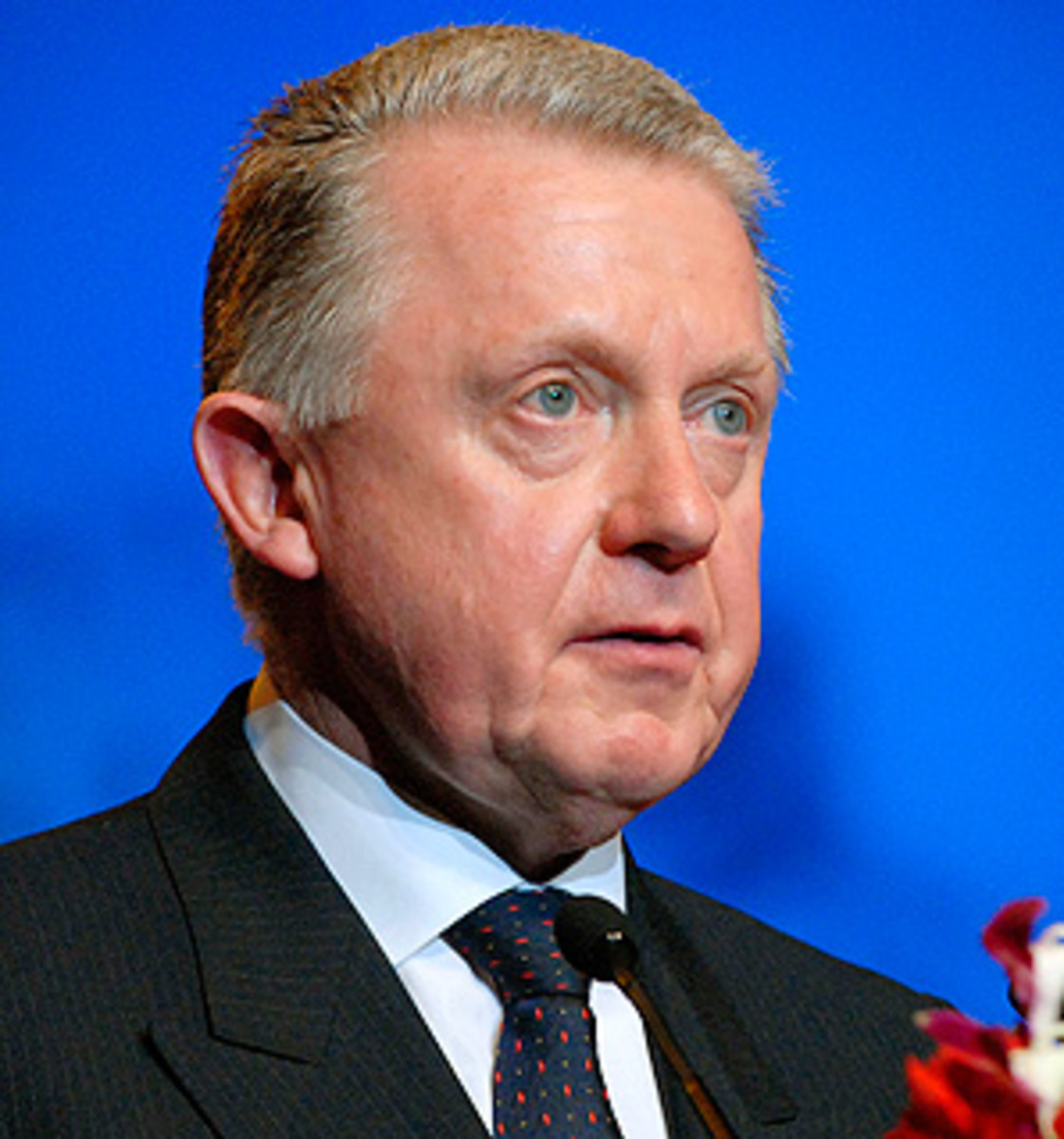UCI says Armstrong's confession helps repair damage to sport

Hein Verbruggen's relieved that Lance Armstrong admitted to doping after years of battling rumors that he helped cover up positive doping tests.
/Reuters
WENGEN, Switzerland (AP) -- Former world cycling federation president Hein Verbruggen feels vindicated after years of "conspiracy theories" that he helped cover up doping by Lance Armstrong. The World Anti-Doping Agency feels otherwise.
The International Cycling Union's honorary president said Friday it was "good that Lance Armstrong finally admitted to doping," and welcomed by the governing body as an important step in repairing damage the disgraced rider did to the sport.
While admitting to doping in his interview with Oprah Winfrey, he denied allegations that he tested positive during the 2001 Tour de Suisse and conspired with International Cycling Union officials to cover it up in exchange for a donation.
"I agree with its conclusions in particular the fact that there was no cover-up," Verbruggen, who led the UCI from 1991-2005, said in a statement provided to The Associated Press.
"I am pleased that after years of accusations being made against me the conspiracy theories have been shown to be nothing more than that," the Dutch official said. "I have no doubt that the peddlers of such accusations and conspiracies will be disappointed by this outcome."
Armstrong reportedly paid the UCI $125,000, which Floyd Landis and Tyler Hamilton testified to the U.S. Anti-Doping Agency was in exchange for covering up a positive test for the blood-booster EPO.
"That story isn't true. There was no positive test. No paying off of the lab. The UCI did not make that go away. I'm no fan of the UCI," Armstrong told Winfrey.
Verbruggen said "given this is true, I was not surprised that Lance Armstrong confirmed this in the interview."
WADA director general David Howman, who has sparred repeatedly with UCI over doping issues, said the interview did nothing to vindicate the federation regarding the payments.
Howman told the AP by telephone from Montreal that WADA's position remains the same.
"It is a very inappropriate thing for an athlete to make donations and this is the only time in our history that we are aware of any athlete in any sport doing such a thing," he said. "That speaks for itself."
Statements issued by Verbruggen and the UCI on Friday did not directly address Armstrong's recollection that "they asked if I would make a donation," apparently toward anti-doping equipment.
"They (the UCI) called and said they didn't have a lot of money - I did," Armstrong said.
Pat McQuaid, the UCI successor to Verbruggen, also seized on Armstrong's interview as vindication.
"There were no positive tests which were covered up and he has confirmed that the donations made to the UCI were to assist in the fight against doping," McQuaid said. "Lance Armstrong has confirmed there was no collusion or conspiracy between the UCI and Lance Armstrong."
Howman said the money issue remains.
"There were two donations, the details of which have always been hazy, the amounts have always been hazy," Howman said. "I don't think any clarification was given in the interview last night."
As for the claims by Verbruggen and McQuaid that the issue had been put to rest, Howman was dismissive.
"They are entitled to express their views," he said. "We just have to disagree."
The UCI's links to the Armstrong case will be examined by an independent commission during three weeks of hearings in London in April.
McQuaid, who replaced Verbruggen as UCI president in 2005, said the UCI would welcome Armstrong participating in a proposed "truth and reconciliation process" for cycling.
The Irish official and Verbruggen have said they will give evidence to the three-member inquiry panel.
Armstrong told Winfrey he took banned drugs during each of the seven Tour de France victories that were stripped from him for cheating.
The UCI acted on a devastating 1,000-page report published by the USADA in October, which raised allegations that the Swiss-based governing body was complicit in the widespread doping program by Armstrong and his teams.
McQuaid said it was "disturbing" to watch the Armstrong interview, which was broadcast worldwide on Winfrey's website starting at 3 a.m. Swiss time on Friday.
"It was disturbing to watch him describe a litany of offenses including among others doping throughout his career, leading a team that doped, bullying, consistently lying to everyone and producing a backdated medical prescription to justify a test result," said the UCI chief, referring to Armstrong's positive test for a corticosteroid during his first Tour win in 1999.
"However, Lance Armstrong also rightly said that cycling is a completely different sport today than it was 10 years ago," McQuaid said.
Verbruggen said Armstrong's interview helped show that "the UCI has been at the forefront of the fight against doping in sport."





